Holocaust Memorial Day 2023
Holocaust Memorial Day 2023
- Holocaust Memorial Day 2023 - Ordinary People
- Newcastle's Holocaust Memorial Day Programme
- Take part in Holocaust Memorial Day
Holocaust Memorial Day 2023 - Ordinary People
The Holocaust Memorial Day Trust theme for Holocaust Memorial Day 2023 is 'Ordinary People'. The theme will consider how Ordinary People were involved in all aspects of the Holocaust, Nazi persecution and subsequent genocides.
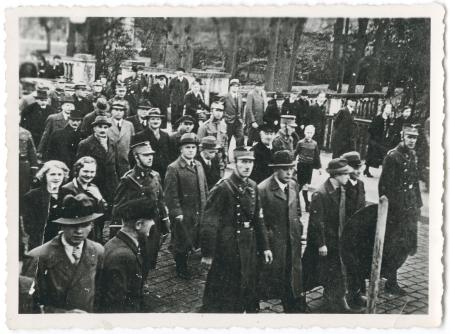
Ordinary People were perpetrators and bystanders, witnesses and rescuers.
And those persecuted, oppressed and murdered were - are - also Ordinary People. They're not criminals, they haven't done anything wrong, they are just Ordinary People who belong to a particular group or community that their persecutors do not like.
"What is abnormal is that I am normal. That I survived the Holocaust and went on to love beautiful girls, to talk, to write, to have toast and tea and live my life - that is what is abnormal" - - Elie Wiesel, survivor of the Holocaust
In every genocide Ordinary People have choices. Those targeted face limited or 'choiceless choices' (Lawrence Langer). There are Ordinary People who decide to ignore what is going on around them, to be bystanders, who choose to allow genocide to happen and others who, because of fear or circumstance, made life threatening choices. And it is Ordinary People who actively perpetrate genocide, who go to extreme depths to cause harm, to persecute and to murder.
But in every genocide there are also extraordinary Ordinary People. Remarkable, unusual people, who see themselves as ordinary, who go to great lengths to help, to rescue and to save others, to stand up against genocide to end the horrors it brings.
The theme considers all the roles Ordinary People play in genocide while also thinking about how Ordinary People, like all of us, can play a bigger part than we could ever imagine in challenging the prejudice, discrimination and hatred that still exists in the world today.
Groups, communities and organisations, with support from the council, have created a moving tribute to those that lost their lives or suffered in the Holocaust and genocides that followed so that current and future generations can learn from the mistakes of the past.
Newcastle's Holocaust Memorial Day Programme
- A Wounded Landscape: Bearing Witness to the Holocaust – Exhibition
- Where Do You Sit? – Exhibition
- Brundibár Arts Festival – Opening Concert: Creativity and Totalitarianism
- Look and don’t forget the ordinary people of the Roma Holocaust – Exhibition
- The English Holocaust – Lecture
- Where Do You Sit? – Film
- Shalom!
- Marta Josephs – Talk
- Battle for Dignity: The Warsaw Ghetto Rising – Film and interactive talk
- How the world learnt about the Holocaust – Lecture
- Brundibár Arts Festival: Between Two Worlds – Narrated concert
- A Place on Earth: Exhibition from the Holocaust Archives at Yad Vashem
- Where Do You Sit? – Radio Broadcast
- Commemorative Event: Presentation and Reflections on the Roma Holocaust
- Testimonies from the Roma Holocaust – Film
- The Book Thief – Film and discussion
- Brundibár Arts Festival: Entartete Musik (Degenerate Music) – Concert
- Holocaust Memorial Day Commemorative Event
- Brundibár Arts Festival: Forbidden Music Regained - Concert
- A Wounded Landscape – Reception with Marc Wilson
- My Mother’s Story – Public talk
Wounded Landscape: Bearing Witness to the Holocaust – Exhibition
Open until Sunday 9 April – Side Gallery
Side Gallery presents a thought-provoking exhibition by world-renowned photographer Marc Wilson. Wounded Landscape: Bearing Witness to the Holocaust tells the story of 22 Holocaust survivors through haunting images taken across 130 locations in 20 countries.
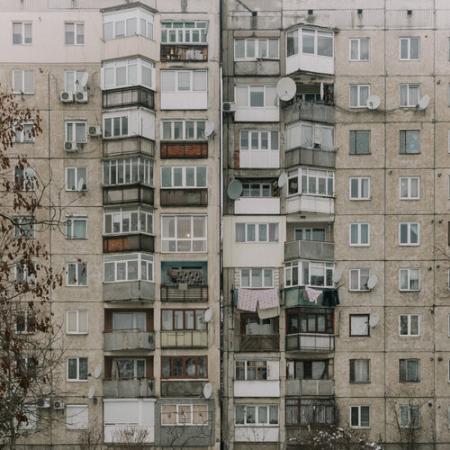
The Nazis and their collaborators murdered nearly six million Jews as well as a huge number of people from other groups. These groups included Roma, disabled people, gay people, Jehovah's Witnesses and Communists who the Nazis considered inferior for racial, ideological or political reasons
These murders took place in nearly 40,000 sites across Europe. Destroyed communities and ghettos, internment, transit and labour camps together with the concentration and extermination camps created a pathway to genocide. Individual killings and mass slaughter took place at these sites, many of which still exist today as a legacy to those who lost their lives.
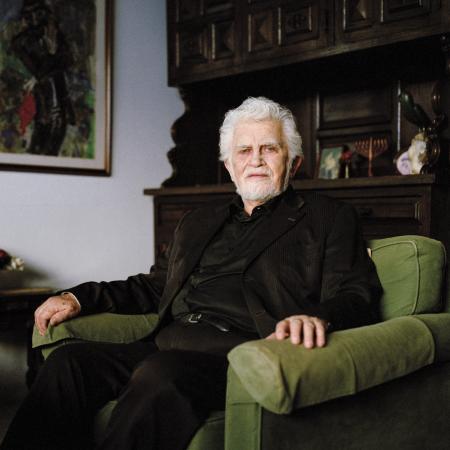
The exhibition includes portraits of survivors and images of the once vibrant communities that were destroyed by the war alongside transcripts of the conversations between Marc and the survivors and their families.
Tickets: No booking required for this free event
Where Do You Sit? – Exhibition
Friday 20 January to Wednesday 25 January – Level 2, Newcastle City Library
A poignant new exhibition of photographic portraits of ordinary people, living locally and internationally, who have shared extraordinary stories.
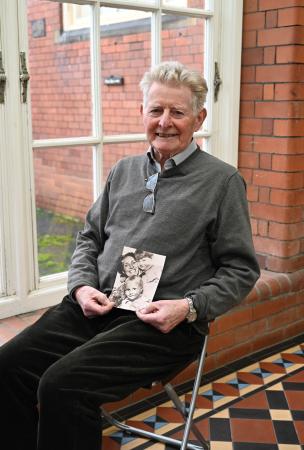
Every sitting portrait is accompanied by a unique story of surviving genocide, losing and finding new homelands and how other ordinary people show extraordinary kindness and courage.
Tickets: No booking is required for this free event
Brundibár Arts Festival – Opening Concert: Creativity and Totalitarianism
Sunday 23 January, 7pm – Jesmond United Reform Church
Brundibár Arts Festival is an annual programme of events that showcases little known music written during the Holocaust. It was launched in 2016 as the first annual festival of its kind. The festival takes its name from Hans Krása's children’s opera “Brundibár”, meaning bumblebee, which was first performed by children in Theresienstadt concentration camp in 1943
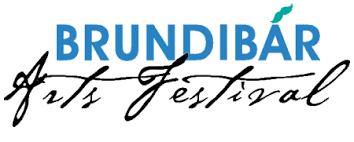
Creativity and Totalitarianism is dedicated to Mieczyslaw Weinberg, a Polish born composer who was forced to turn down the opportunity of studying in the USA when war broke out in 1939. Instead he fled east to Minsk to escape Nazi persecution. His Mother, Father and Sister, who stayed in Warsaw all perished in he Trawniki concentration camp. When the Germans arrived in Russian in 1941 he was forced to flee again. This time he travelled to Tashkent where he met and married Natalia Vovsi and wrote his First Symphony.
Even after the war ended Weinberg did not escape persecution. Antisemitic purges took place and, on Stalin’s orders, his father-in-law was murdered. In 1953, Weinberg was arrested and charged with plotting to establish a Jewish republic in the Crimea. A charge that carried a death sentence. Fortunately for the composer, Stalin died later that year and he, along with other prisoners, was released.
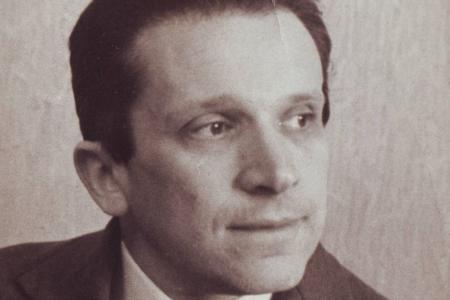
Weinberg did not see himself as a victim and took pride in the fact his compositions were performed by Russian performers despite his style being influenced by Jewish folk music.
"Many of my works are related to the theme of war. This, alas, was not my own choice. It was dictated by my fate, by the tragic fate of my relatives. I regard it as my moral duty to write about the war, about the horrors that befell mankind in our century." - Mieczyslaw Weinberg
Tickets: Find out more and purchase tickets at http://www.brundibarartsfestival.com/events.html
Look and don’t forget the ordinary people of Roma Holocaust – Exhibition
Monday 23 January to Monday 30 January – West Fifteen Business Centre
Europe’s Roma and Sinti people were target by the Nazis for total destruction with up to 500,000 people killed during the Holocaust. Many more were imprisoned, used as forced labour or subjected to forced sterilization and medical experimentation. Roma and Sinti people were deported to ghettos and concentration camps including Dachau, Mauthausen and Auschwitz-Birkenau which had a specific ‘Gypsy Camp.’
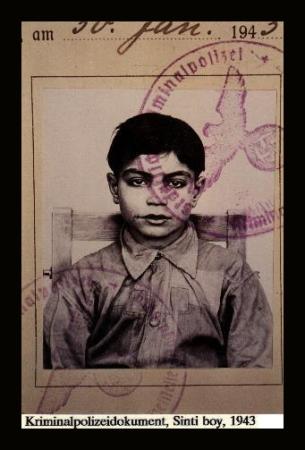
Roma ACCESS Newcastle present a thought-provoking exhibition of Roma victims of the Holocaust to help make sure they are never forgotten.
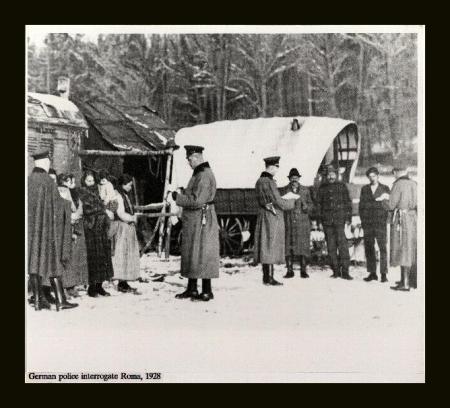
Tickets: No booking is required for this free exhibition. Guided visits to the exhibition are available on request via the Facebook page @RomaACCESSNewcastle.
The English Holocaust – Lecture
Tuesday 24 January, 2.30pm – Bewick Hall, Newcastle City Library
In the twelfth and thirteenth centuries England experience a wave of Anti-Judaism. Mass expulsions and ethnic and religious cleansing of Jewish people followed the mass murder of the entire Jewish population of York in 1190.
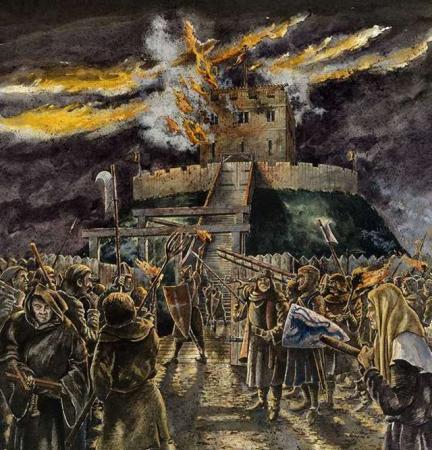
The victims were ordinary people, murdered by their neighbours. The Jewish community was purged and not replaced until 1650 when Cromwell invited Jewish entrepreneurs and investors to return to England to grow the economy.
This lecture examines how this atrocity happened, the parallels with the rise of eugenics and antisemitism in the nineteenth and twentieth centuries and at comparisons with trends today.
Tickets: Booking is essential for this free event. Reserve your tickets at https://www.eventbrite.co.uk/e/where-do-you-sit-tickets-46831149127
Where Do You Sit? – Film
Wednesday 25 January, 1pm – Bewick Hall, Newcastle City Library
An ordinary chair, in a waiting room, prison, hospital, community hall, processing centre.
Where Do You Sit? is a collection of stories about surviving interrogation, being terrified of the unknown, making critical decisions and receiving sanctuary.
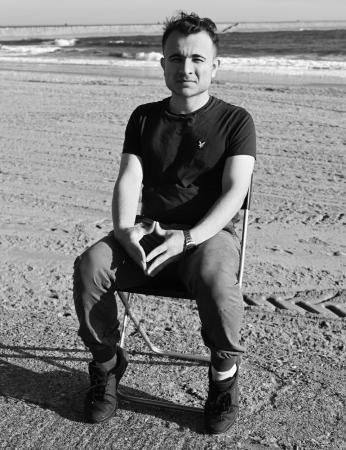
As an ordinary person Where Do You Sit in these extraordinary times, past and present?
Hosted by Claire Webster Saaremets and Kema Sikazwe, this unique event explores the extraordinary true stories, of ordinary people through the use of performance, film and social action.
Tickets: Booking is essential for this free event. Reserve your tickets at https://www.eventbrite.co.uk/e/where-do-you-sit-tickets-468311491277
Shalom!
Thursday 26 January to Sunday 1 October - Destination Tyneside Gallery, Discovery Museum
In the 1760's, Jews fleeing persecution in Russia and Poland settled in the port towns of Sunderland and North Shields.
Newcastle's first Jewish community settled close to where the Discovery Museum is today in the 1830's. Land for the community's first burial ground was purchased in 1831 in Thornton Street with the first purpose built Synagogue opened seven years later in neighbouring Temple Street.
Shalom! is a new display that introduces two new Jewish heritage partnership projects in the North East.
The Lahav Jewish Heritage Project aims to collect, preserve and celebrate the rich history of the Jewish community in the North East of England from the 1700s to the present day.
The Unlocking North East Jewish Heritage Project aims to create an online resource to tell key stories and broaden access to the Jewish records already held in archives across the region.
Tickets: Booking is not required for this free exhibition.
Marta Josephs – Talk
Thursday 26 January, 2.30pm - Great Hall Discovery Museum and online
Andrew Fenkel was a Hungarian Jew who survived both Mauthausen and Gunskirchen concentration camps. In 1956, Andrew Fenkel and his young family escaped Hungary during the Hungarian uprising.
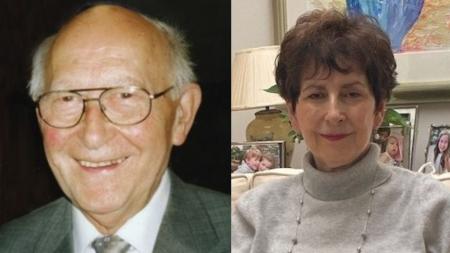
In this year's Holocaust Memorial Day talk his daughter, Marta Joseph, will share her late father's story.
Tickets: This free will be in-person and live streamed. w Ghetto Rising
Thursday 26 January, 5pm – Denton Burn Library
On 19 April 1943, Jews in the Warsaw Ghetto not only protested but began to fight back by refusing to line up at assembly points for deportation. This event, by John Sadler's Time Bandits, uses eyewitness testimony, living history and film to tell the story of the day when the oppressed began to fight back.
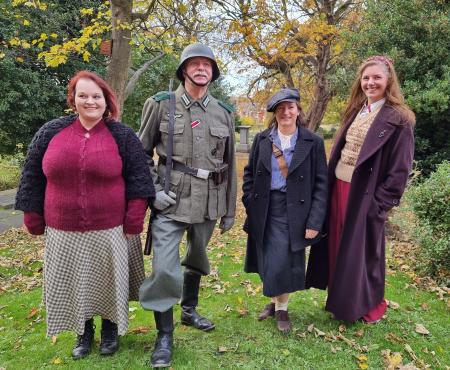
On the first day, the hungry, the refugees, and the beggars went. The more solid inhabitants still did not feel the act of expulsion, it was mainly those without homes, or food or who did not have the required permits. The Germans imposed a quota of thousands who had to appear at the Umschlagplatz. The Jewish Police emptied the refuges, dragged sick and dying from the streets. The Germans were angry it took so long to fill the quotas and began arresting anyone. Nobody thought about their neighbours, just how they can safe themselves.
Then a valiant band of, mainly young, Jewish resistance fighters took on the SS. The oppressed began to fight back. The rising lasted just under a month until, on 16 May 1943, the brave fighters were finally defeated. The Nazis entered the ghetto to liquidate it - destroy the ghetto and murder or remove all those inside.
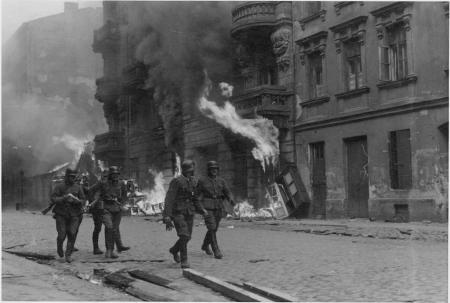
It was a doomed fight but heroic and one which lit a flame throughout many resistance groups in occupied Europe, a flame that would eventually consume the Reich itself.
Tickets: Booking is essential for this free event. Reserve your place at https://www.eventbrite.co.uk/e/a-battle-for-dignity-interactive-talk-on-the-rising-in-the-warsaw-ghetto-tickets-507706242037
How the world learnt about the Holocaust - Lecture
Thursday 26 January, 5.15pm – Bewick Hall, Newcastle City Library
Our current understanding of the Holocaust is radically different to that of those who lived through World War 2. In this lecture, How the world learnt about the Holocaust: Changing post-war representations of the Holocaust in Europe and North America, Dr Ian Biddle explores the process by which we came to understand the Holocaust.
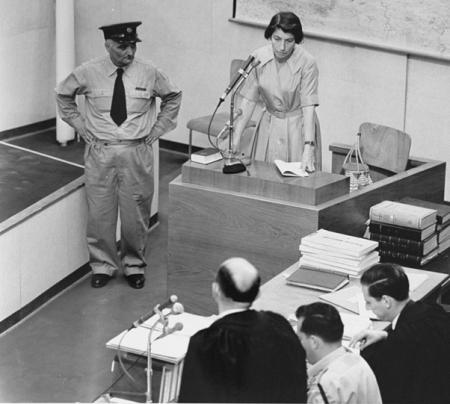
By using footage from the Eichmann trial, literary, musical and cinematic evidence and the UN definition of genocide Dr Biddle uncovers how the public in the West made sense of the brutality they saw on news reals, read about in newspapers and heard from friends and family who fought in the war.
Tickets: Booking is essential for this free event. Reserve your tickets at https://www.eventbrite.co.uk/e/how-the-world-learnt-about-the-holocaust-tickets-490439486707
Brundibár Arts Festival Between Two Worlds – Narrated concert
Thursday 26 January, 730pm - Caedmon Hall, Gateshead
A performance dedicated to Erich Wolfgang Korngold, who escaped from Nazi Vienna to Hollywood, where he became a successful film composer.
In Hollywood, in 1945, Erich Wolfgang Korngold is facing a moment of crisis. Since the Anschluss sent him and his family into exile in 1938, the Jewish composer - formerly a celebrated child prodigy in Vienna - has devoted himself to writing film music. He has always endured a toxic relationship with his father, the music critic Julius Korngold, whose smothering, controlling attitude has made life a misery. But now, with the end of World War 2 and the death of Julius, Erich and his wife, Luzi, must take stock of where he is, and why, and where to go from there. Should he return to the concert hall and Vienna? Can he resurrect his dreams?
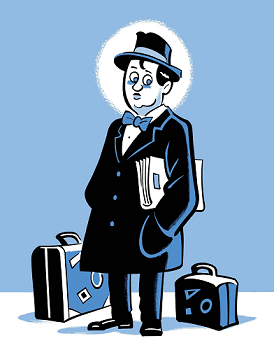
Between Two Worlds throws Korngold’s dilemmas into sharp relief, 125 years after his birth. It sheds fresh light on a man and musician of integrity, honour and enormous heart who had a constant struggle against the vicissitudes of fate. Extracts of his chamber music, songs and arias bring his creative world to life as his past, present and future collide in the story of one extraordinary night.
Tickets: Find our more and purchase tickets at www.brundibarartsfestival.com/events
A Place on Earth: Exhibition from the Holocaust Archives at Yad Vashem
Friday 27 January to Friday 10 February - Newcastle City Library
The Auschwitz Album is the only surviving visual evidence of the process leading to the mass murder at Auschwitz-Birkenau and his held in the Holocaust Archives at Yad Vashem. The photos in the album were taken at the end of May or beginning of July be two SS men who were set the task of taking ID photos and fingerprints of inmates who were not sent directly to the gas chamber. The photos show the arrival of Hungarian Jews from Carpathian Ruthenia and the entire process except for the killing itself.
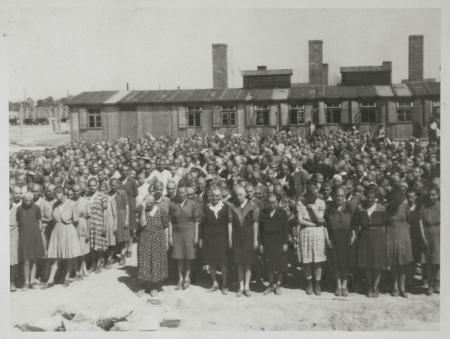
The Representative Council of North East Jewry present a moving exhibition of images from Auschwitz held in the archives of the World Holocaust Remembrance Centre, Yad Vashem.
Tickets: Booking is not required for this free exhibition.
Where Do You Sit? – Radio Broadcast
Friday 27 January, 12.30pm - Skimstone Radio
Where Do You Sit? is a collection of stories where ordinary people share their extraordinary stories about surviving genocide, losing and finding new homelands and the ordinary people who showed extraordinary kindness and courage.
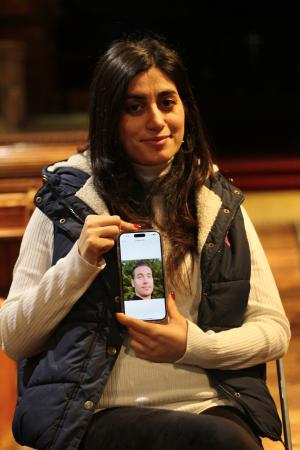
In this live broadcast about from Skimstone Radio presenters Claire Webster Saaremets and Kema Sikazwe will share a selection of extraordinary stories about surviving interrogation and loss, coping with the unknown, making critical decisions and receiving sanctuary.
Tickets: No booking is required for this free event. Tune in to Skimstone Radio at https://www.skimstone.org.uk/skimstone-radio to listen live.
Presentation and Reflections on the Roma Holocaust – Commemorative Event
Friday 27 January, 4pm - West Fifteen Business Centre
Roma and Sinti men, women and children were targeted for persecution and imprisonment in Nazi Germany. In 1936 there was a focus on clearing Roma and Sinti people from Berlin before the city hosted the Olympic Games. As World War 2 began the persecution intensified.
On 26 February 1943, the first transport of Roma and Sinti men, women and children arrived in Auschwitz-Birkenau. The death camp had a specific 'Gypsy Camp'. On 2 August 1944, the Gypsy Camp at Auschwitz was liquidated. Thousands of Roma and Sinti People were sent to their death in the gas chambers. The remaining prisoners were deported to Buchenwald and Ravensbruck concentration camps for forced labour.
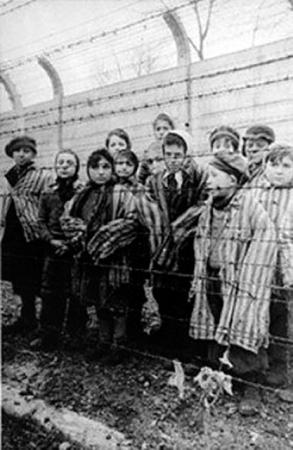
Of the 23,000 Roma and Sinti people imprisoned in Auschwitz over 20,000 were murdered.
This commemorative event, hosted by Roma ACCESS Newcastle will reflect on the horrors of the Roma Holocaust and remember those who were persecuted, tortured and lost their lives.
Tickets: Booking for this free event is essential. Reserve your seats at https://www.eventbrite.co.uk/e/ordinary-people-of-the-roma-holocaust-tickets-522551795487
Testimonies from the Roma Holocaust – Film
Friday 27 January, 4.45 - West Fifteen Business Centre
The Roma Holocaust is often referred to as the forgotten Holocaust. BST Newcastle are committed to teaching younger members of the Roma community and the wider public about the Roma Holocaust.
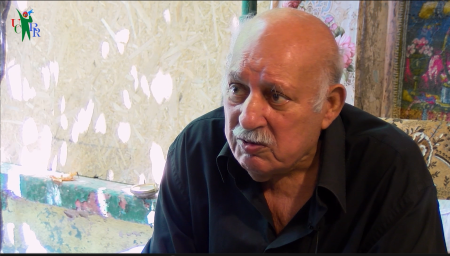
Testimonies from the Roma Holocaust uncovers stories previously unheard by English speaking audiences about the Roma population who survived the Holocaust. It translates the video testimonies of survivors and their descendants into English. This is the inaugural screening of the films completed so far.
Tickets: Booking for this free event is essential. Reserve your seats at https://www.eventbrite.co.uk/e/ordinary-people-of-the-roma-holocaust-tickets-522551795487
The Book Thief – Film and discussion
Friday 27 January, 6pm - Bewick Hall, Newcastle City Library
The Book Thief is an historical novel by Markus Zusak, an Australian author of German and Austrian descent, first published in 2005. A film adaptation of the book, directed by Brian Percival, was released in 2013.
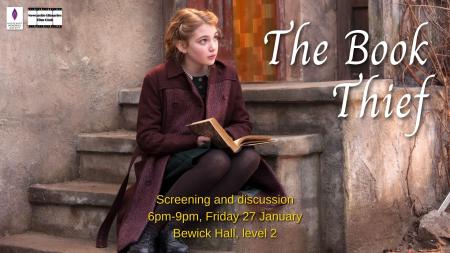
The film tells the story of a friendship between Liesel, a young girl living with foster parents in Nazi Germany, and Max, a Jewish fist-fighter who is being protected by her foster parents. The friendship creates a strong contrast to the fascist hate that is the backdrop of the story.
The burning of books by the Nazis in the story represents 'evil incarnate'. Liesel's rescue of the books from the Nazi bonfires represents her reclaiming her freedom.
Tickets: Booking is essential for this free event. Reserve your seats at https://www.eventbrite.co.uk/e/holocaust-memorial-day-the-book-thief-2013-tickets-479441100237
Brundibár Arts Festival Entartete Musik (Degenerate Music) – Concert
Saturday 28 January, 7.30pm - The Globe, Newcastle
There is extensive evidence that jazz was played in concentration camps during the war including the Mauthausen mini-jazz band; the Buchenwald Jazz orchestra; the "Sing-Sing Boys" in Sachsenchausen and the "Ghetto Swingers" in Terezin.
Brundibar Arts Festival's first jazz even will focus on the musical arrangements of Fritz Weiss who wrote and played for the Ghetto Swingers in Terezin before being murdered in Auschwitz.
Tickets: Find out more and purchase tickets at http://www.brundibarartsfestival.com/events.html
Holocaust Memorial Day Commemorative Event
The Representative Council of North East Jewry present a film of the commemoration event that was held in the City Library on Sunday 29 January 2023. The moving film is based on the theme of Ordinary people and includes a new composition on the theme of 'Ordinary People' which was performed by local school children.
Brundibár Arts Festival Forbidden Music Regained - Concert
Sunday 29 January, 7.30pm - Kings Hall, Newcastle University
This event is dedicated to the inspirational women composers of Jewish heritage caught up in World War 2 in Holland. None of the three works have been recorded or performed since they were composed. The music was in manuscript form until it was specially published for the Brundibar Arts Festival's Inspirational Women project.
Tickets: Find out more and purchase tickets at http://www.brundibarartsfestival.com/events.html
Wounded Landscape: Reception with Marc Wilson
Saturday 4 February, 2pm – Side Gallery
World-renowned photographer, Marc Wilson, is recognised for his long-term projects that document history through landscapes, the people who lived and died in these places and the objects that are found there. By using images alongside audio recordings of interviews and sounds he brings to life the real-life stories of the people he and landscapes that are the subject of his photographs.
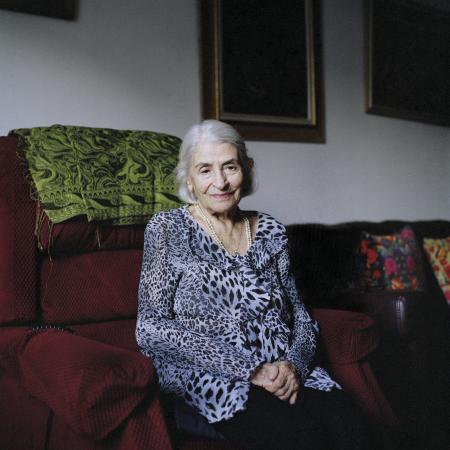
Join Marc for a reception and talk about his work on A wounded Landscape: Bearing Witness to the Holocaust while viewing the images in this moving exhibition.
Tickets: Booking is essential for this free event. To find out more or to reserve a space to attend in person or watch the live stream of this event visit www.amber-online.com/whatson/a-wounded-landscape-exhibition-opening-event-photographer-talk/ (link unavailable).
My Mother’s Story – Public talk
Wednesday 8 February, 1pm - Lit and Phil
Deanna Van Der Velde tells the story of her mother's experiences during World War 2.
Tickets: https://www.litandphil.org.uk/events
Take part in Holocaust Memorial Day
Holocaust Memorial Day takes plane on 27 January and there are different and meaningful ways you can play a part on or around the day. From schools and libraries to workplaces and community centres Holocaust Memorial Day activities take place in a range of diverse settings. There are also a range of different ways that you can get involved including:
Holocaust Memorial Day Online
By becoming part of the online conversation you can help spread messages of tolerance and understanding. The Holocaust Memorial Day Trust has a range of resources to help you get involved in commemorating Holocaust Memorial Day online. Activities include book clubs, poetry writing and online ceremonies as well as sharing messages on social media to help people learn more about the Holocaust, Nazi persecution and more recent genocides.
Every year people from across the UK and around the world put a lit candle in the window to Light the Darkness.
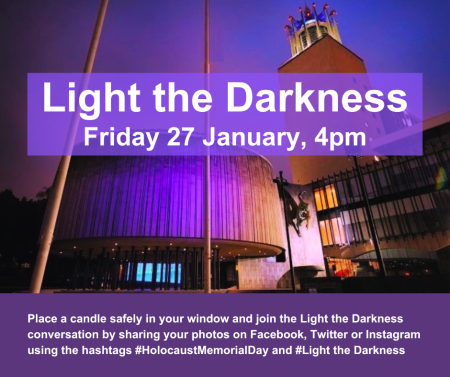 /p>
/p>
In Newcastle the Civic Centre will be lit as residents from across the city light candles in memory of victims of the Holocaust and other genocides, in tribute to the survivors and to take a stand against prejudice, discrimination and hatred today.
Did you know?
British forces liberated Bergen-Belsen on 15 April 1945. Around 60,000 starving and ill people were packed together without food, water or basic sanitation. Many were suffering from typhus, dysentery and starvation. There were thousands of unburied bodies lying around the camp.
"The Women of Belsen", made by Northern Cultural Projects, combines photos, film and sound recordings from the camp with oral and written testimonies from female Holocaust survivors and aid workers to create a poignant reminder of the horrors of the Holocaust.
You can find a full list of Holocaust Memorial Day activities that are taking place across the UK and register your own event on the Holocaust Memorial Day Trust website. Find out more at https://www.hmd.org.uk/activities
If you would like to give us feedback on our website, please complete this short online form.